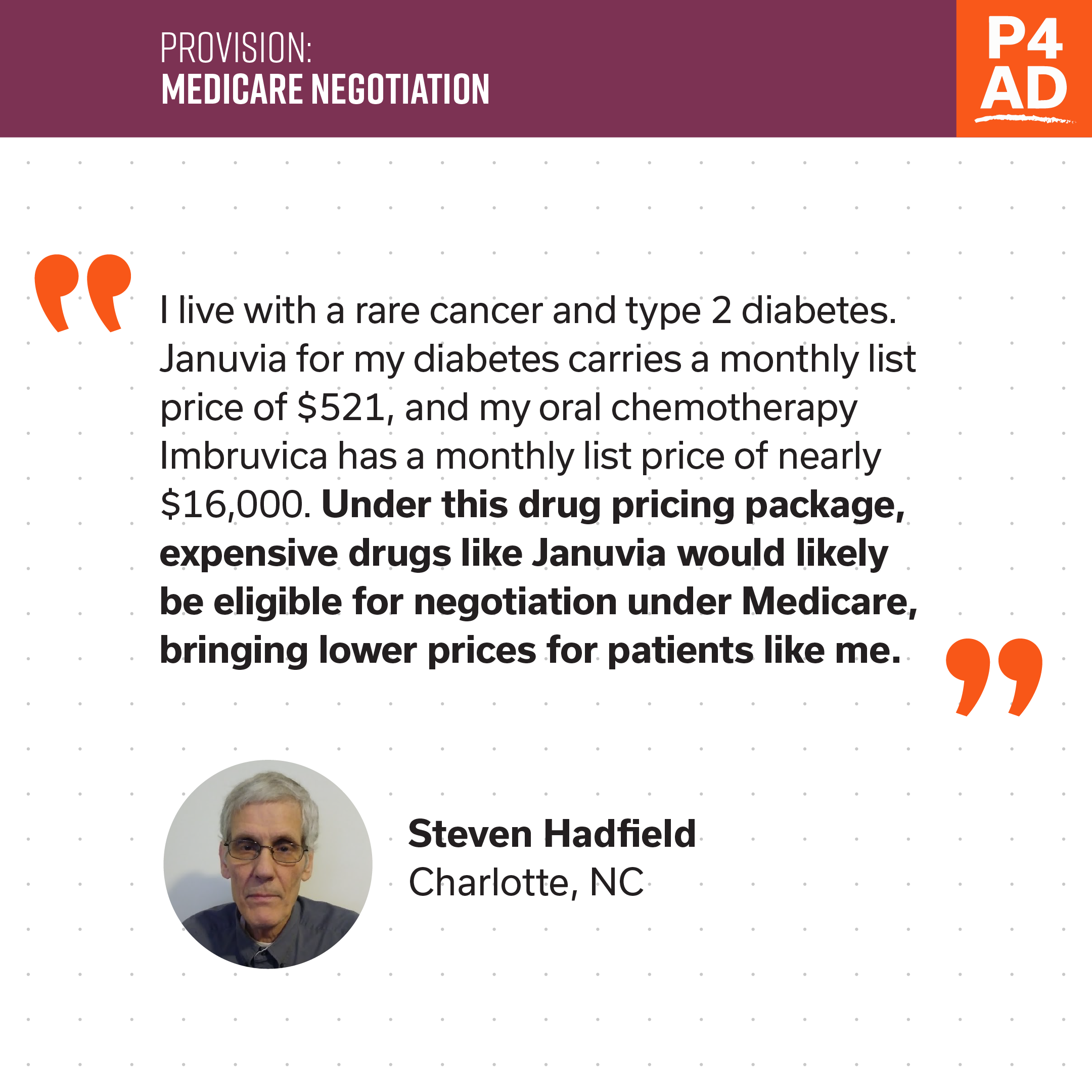
My name is Steven Hadfield. I am 70 years old, a long-time North Carolinian, a husband, a grandfather of three, and a football fanatic. I’m also a rare cancer and type 2 diabetes patient.
Living with multiple conditions brings a host of expensive drugs — to afford mine I work multiple jobs.
Just for my diabetes, I need multiple prescriptions with list prices in the hundreds of dollars every month. One medication, Januvia, alone carries a monthly list price of $521 and was the fourth most costly drug for Medicare Part D in 2020. I also am prescribed Lantus to treat my diabetes — it costs me $400 per month and its drug maker makes $15 million a day selling it.
My rare blood cancer is also treated with an expensive drug called Brukinsa. The list price for Brukinsa is nearly $14,000 every month. Over the past two years, Brukinsa’s manufacturer has raised the monthly price by $1,062. There isn’t a generic option for Brukinsa, so I have no choice but to buy this medication. So many people need the drug to stay alive.
As a Medicare beneficiary, I must pay a percentage of these outrageous list prices each time I pick up my medications. At times, I’ve had to forgo or ration some of my drugs because of their high costs.
With these drug prices, you can understand why I live in constant fear of my high drug prices.
That’s why I am grateful that the drug price provisions of the Inflation Reduction Act will bring me, and millions of other Medicare beneficiaries, relief from our high drug prices.
Under the Senate drug pricing package, for the first time ever, expensive drugs like Januvia are likely to be eligible for negotiation under Medicare.
Advocates like me have been fighting for decades for legislation that would allow Medicare to negotiate lower drug prices by leveraging its purchasing power on behalf on beneficiaires. By focusing on some of the most expensive drugs, like Januvia, Medicare negotiation will lower prices, saving Medicare nearly $300 billion over the next decade, and, because we pay based on list prices, Medicare negotiation will lower drug costs for beneficiaries like me.
The same is true for the price gouging penalties in the Inflation Reduction Act. The law penalizes drug companies for price increases that outpace inflation. This provision will stop outrageous price hikes on drugs like Brukinsa’s 2021 price hike that have pushed list prices and patient costs higher and higher.
On top of these reforms, Medicare beneficiaries like me will see our annual out-of-pocket costs capped at $2,000 and insulin copays capped at $35 each month. Right now, I pay a percentage of the list price for my drugs all year long, amounting to thousands of dollars out of pocket many years and hundreds of dollars each month for my insulin alone. These reforms will allow me to pursue the best course of treatment without worrying about it adding hundreds to my monthly costs.
I cannot express what these reforms, especially Medicare negotiation, mean for me as an advocate and patient. After fighting for years to pass legislation that would give Medicare the power to negotiate and year after year seeing drug prices become further out of reach, knowing that Medicare will use its power to help patients brings me great relief.
The Inflation Reduction Act is a historic achievement decades in the making that will lower drug prices for so many patients and finally end Big Pharma’s one-sided pricing power. Medicare beneficiaries like me will no longer be used to build Big Pharma’s excessive profits, and through Medicare negotiation we will have someone fighting for lower prices for us.